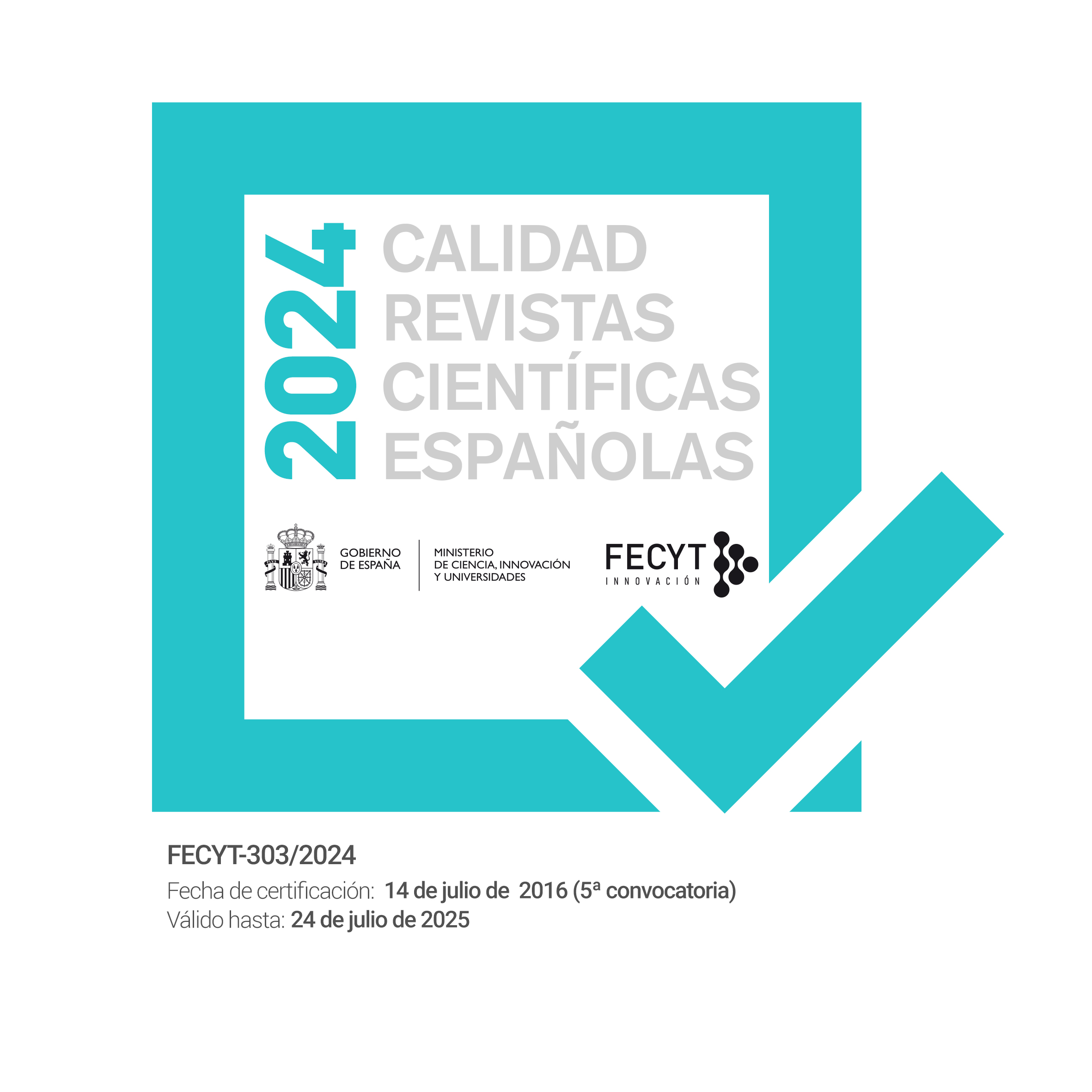Assessing women participation in higher education leadership: case studies of Kenya, South Sudan, and Uganda
DOI:
https://doi.org/10.5944/reec.45.2024.40066Palabras clave:
educación superior, mujeres, igualdad de género, Kenia, Sudán del Sur, UgandaResumen
Policy frameworks and legislation have enhanced the implementation of programs focused on improving women's education in Eastern Africa, yet gender parity remains a challenge in higher education, especially in top leadership positions. This study assesses women’s participation in leadership roles in higher education in Kenya, South Sudan, and Uganda and explores appointment criteria, obstacles, and mechanisms to increase female representation. Data were collected through desk research and a questionnaire aimed at university officials and administered online. The final sample consisted of 19 higher education institutions, and basic descriptive statistics were generated from the collected data. The results show that women comprise less than half of the top positions at both administrative and academic levels within the studied institutions. The key factors considered for appointing women to leadership positions include qualifications based on experience, leadership potential, and formal preparation. The study unveils challenges in the sector and contributes to evidence-based policymakingDescargas
Citas
Addis Ababa Agreement on the Problem of South Sudan. 27 February 1972. https://peacemaker.un.org/sites/peacemaker.un.org/files/SD_720312_Addis%20Ababa%20Agreement%20on%20the%20Problem%20of%20South%20Sudan.pdf
Akala, B. M. (2019). Affirmative Action for Gender Justice in South African and Kenyan Education Systems. Africa Education Review, 1–15. https://doi.org/10.1080/18146627.2017.1406807
Akec, J. A. (2021). Status of Higher Education and TVET Sector in South Sudan: Gender-based analysis of the ST&I Ecosystems, University of Juba. https://www.ruforum.org/sites/default/files/Reports/Prof.Akec%27s%20Report%20Final.pdf
Beijing Declaration and Platform for Action. 15 September 1995. https://archive.unescwa.org/sites/www.unescwa.org/files/u1281/bdpfa_e.pdf
Carvalho, T. & Machado, M. T. (2010). Gender and shifts in higher education managerial regimes. Australian universities’ review, 52(2), 33-42.
Comprehensive Peace Agreement between the Government of the Sudan and the Sudan People’s Liberation Movement/Sudan People’s Liberation Army. 9 January 2005. https://peacemaker.un.org/sites/peacemaker.un.org/files/SD_060000_The%20Comprehensive%20Peace%20Agreement.pdf
Constitution of the Republic of Uganda 1995 (Uganda). https://www.parliament.go.ug/documents/1240/constitution
Convention on the Elimination of all Forms of Discrimination Against Women. 18 December 1979. https://www.ohchr.org/sites/default/files/Documents/ProfessionalInterest/cedaw.pdf
Geoffrey, O. (2020). Gender in Uganda’s tertiary educational distribution. Social Sciences & Humanities Open, 2(1), 100305. https://doi.org/10.1016/j.ssaho.2020.100023
Government of South Sudan. (2011). South Sudan Vision 2040: Towards Freedom, Equality, Justice, Peace and Prosperity for All. https://documents.pub/document/southern-sudan-vision-2040-2017-01-10-south-sudan-vision-2040-2011-4-foreword.html?page=1
Government of the Republic of Kenya. (2008). Kenya Vision 2030: First Medium Term Plan (MTP) 2008-2012. . https://vision2030.go.ke/wp-content/uploads/2018/06/kenya_medium_term_plan_2008-2012-1.pdf
Government of Uganda. (2007). National Gender Policy. https://faolex.fao.org/docs/pdf/uga163564.pdf
Gyimah-Brempong, K. & Ondiege, P. (2011). Reforming Higher Education: Access, Equity, and Financing in Botswana, Ethiopia, Kenya, South Africa, and Tunisia. In World Economic Forum, the World Bank and the African Development Bank (Eds.), The Africa Competitiveness Report 2011 (pp. 39-66). World Economic Forum.
Kenya National Bureau of Statistics (KNBS) (2021). Economic Survey 2021. https://www.knbs.or.ke/wp-content/uploads/2021/09/Economic-Survey-2021.pdf
Kwesiga, J. C. (2002). Women’s access to higher education in Africa: Uganda’s experience. Fountain Publishers.
Ministry of Justice. (2012). Laws of South Sudan. The Higher Education Act. https://dr.211check.org/wp-content/uploads/2021/07/Higher-Education-Act-2012.pdf
Morley, L. (2005). Gender equity in Commonwealth higher education. Women’s Studies International Forum, 28(2–3), 209-221. https://doi.org/10.1016/j.wsif.2005.04.008
Nakamanya, F., Bisaso, R. & Kimoga, J. (2017). “This Motivates Me to Work towards Great Performance’: Higher Education Female Leaders’ Voices on the Nature of Support to Their Leadership. American Journal of Educational Research, 5(9), 990-995. doi: 10.12691/education-5-9-11
Odebero, S. O., Bosire, J. N., Sang, A. K., Ngala, F. B. J. & Ngware, M. W. (2007). Equity in the distribution of HELB loans in Kenya in relation to student’s characteristics: An empirical analysis. Educational Research and Review, 2(8), 209–219.
Odhiambo, G. (2016). Higher education in Kenya: an assessment of current responses to the imperative of widening access. Journal of Higher Education Policy and Management, 38(2), 196-211. DOI: 10.1080/1360080X.2016.1150551
Onsongo, J. (2009). Affirmative action, gender equity and university admissions - Kenya, Uganda and Tanzania. London Review of Education, 7(1), 71-81. doi:10.1080/14748460802700710
Republic of Kenya. (2011). National Gender and Equality Commission Act No. 15 of 2011. https://kenyalaw.org/kl/fileadmin/pdfdownloads/RepealedStatutes/NationalGenderandEqualityCommissionAct15of2011.pdf
Republic of Kenya. (2012). Universities Act No. 42 of 2012. https://www.knqa.go.ke/wp-content/uploads/2018/10/Universities-Act-42-of-2012.pdf
Republic of Kenya. (2013). Technical and Vocational Education and Training Act No. 29 of 2013. https://www.mit.ac.ke/wp-content/uploads/2022/11/TVET-ACT.pdf
Republic of Kenya. Ministry of Education Science and Technology. (2015). Education and Training Sector Gender Policy. Second edition. https://www.education.go.ke/sites/default/files/2022-05/EDUCATION-and-TRAINING-Sector-Gender-Policy-2015-FINAL-PRINTED-VERSION1.pdf
Republic of South Sudan. Ministry of General Education and Instruction. (2017). The National General Education Policy, 2017-2027. https://planipolis.iiep.unesco.org/sites/default/files/ressources/south_sudan_the_national_general_education_policy_2017_2027_eng.pdf
Republic of Uganda. (2001). Universities and Other Tertiary Institutions Acthttps://policies.mak.ac.ug/sites/default/files/policies/001_UNIVERSITIES_%20AND_OTHER_TERTIARY_INSTITUTIONS_ACT.pdf
Republic of Uganda. (2007). The Equal Opportunities Commission Act. https://eoc.go.ug/eoc/wp-content/uploads/2020/04/THE-EQUAL-OPPORTUNITIES-COMMISSION-ACT-2007.pdf
Republic of Uganda. (2015). Public Finance Management Act. https://www.ugandainvest.go.ug/wp-content/uploads/2016/02/Uganda_Public_Finance_Management_Act_2015_3.pdf
Republic of Uganda. Ministry of Education and Sports [MoES]. (2016). Gender in Education Sector Policy. https://planipolis.iiep.unesco.org/sites/default/files/ressources/uganda_gender_in_education_sector_policy.pdf
Sifuna, D. (2006). A Review of major obstacles to women's participation in higher education in Kenya. Research in Post-Compulsory Education, 11(1), 85–105. doi:10.1080/13596740500507995
Syomene, A. & Kindiki, J. (2015). Women Education and Economic Development in Kenya: Implications for Curriculum Development and Implementation Processes. Journal of Education and Practice, 6(15), 38-43.
UNESCO. (2000). The Dakar Framework for Action: Education for All: Meeting Our Collective Commitments. https://unesdoc.unesco.org/ark:/48223/pf0000121147
UNESCO. (2020). Towards universal access to higher education: international trends. UNESCO-IESALC. https://unesdoc.unesco.org/ark:/48223/pf0000375686
United Nations. (1948). Universal Declaration of Human Rights. https://www.un.org/sites/un2.un.org/files/2021/03/udhr.pdf
Wamahiu, S. P. (2011). Educate more girls today for a better Kenya. Talk presented at the Global Action Week- Big Story Campaign at Milimani primary school, Nairobi on 6th May 2011.
Descargas
Publicado
Cómo citar
Número
Sección
Licencia
Derechos de autor 2024 Winnie V. Mitullah , Sibrino Forojalla, Benon Basheka, Daniele Vieira Do Nascimento, Karina Ginoyan

Esta obra está bajo una licencia internacional Creative Commons Atribución-NoComercial 4.0.

Acknowledgement – Non Commercial (by-nc): Generation of derivated Works is allowed as long as a commercial use is not developed. The original work cannot be used with commercial aims.
This journal does not apply any fee to the authors by the filing or processing of articles.











